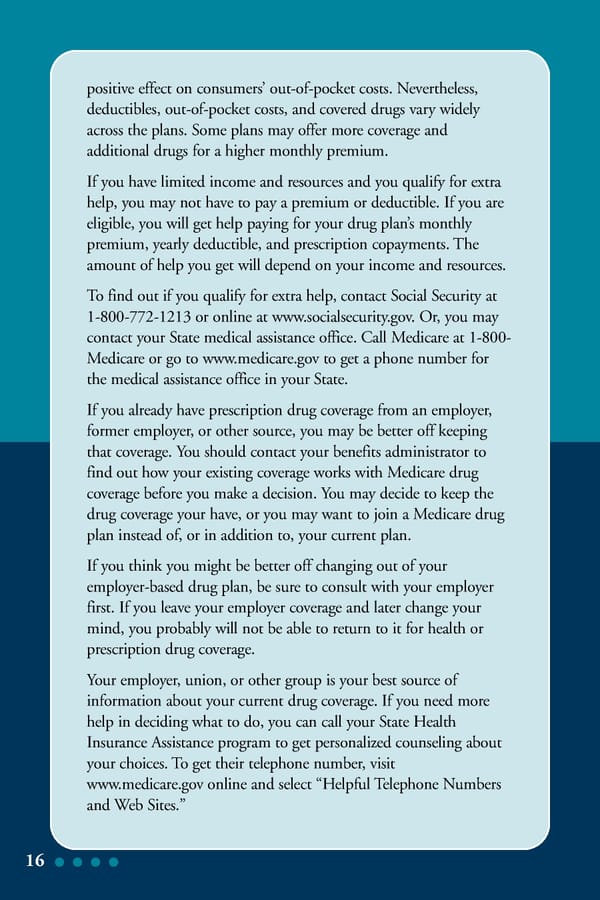positive effect on consumers’ out-of-pocket costs. Nevertheless, deductibles, out-of-pocket costs, and covered drugs vary widely across the plans. Some plans may offer more coverage and additional drugs for a higher monthly premium. If you have limited income and resources and you qualify for extra help, you may not have to pay a premium or deductible. If you are eligible, you will get help paying for your drug plan’s monthly premium, yearly deductible, and prescription copayments. The amount of help you get will depend on your income and resources. To find out if you qualify for extra help, contact Social Security at 1-800-772-1213 or online at www.socialsecurity.gov. Or, you may contact your State medical assistance office. Call Medicare at 1-800- Medicare or go to www.medicare.gov to get a phone number for the medical assistance office in your State. If you already have prescription drug coverage from an employer, former employer, or other source, you may be better off keeping that coverage. You should contact your benefits administrator to find out how your existing coverage works with Medicare drug coverage before you make a decision. You may decide to keep the drug coverage your have, or you may want to join a Medicare drug plan instead of, or in addition to, your current plan. If you think you might be better off changing out of your employer-based drug plan, be sure to consult with your employer first. If you leave your employer coverage and later change your mind, you probably will not be able to return to it for health or prescription drug coverage. Your employer, union, or other group is your best source of information about your current drug coverage. If you need more help in deciding what to do, you can call your State Health Insurance Assistance program to get personalized counseling about your choices. To get their telephone number, visit www.medicare.gov online and select “Helpful Telephone Numbers and Web Sites.” 16
 Health Insurance Q&A Page 19 Page 21
Health Insurance Q&A Page 19 Page 21